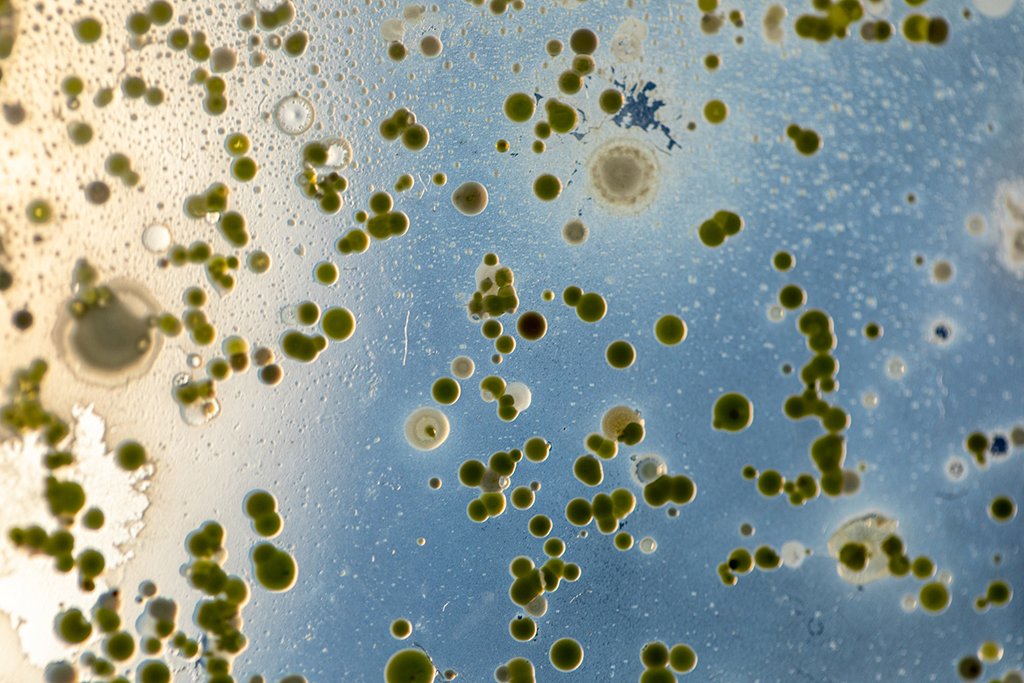
Photo By Sinhyu at istock
No homeowner ever wants to see mold. It can contribute to structural problems and may pose a health risk to a home’s occupants as well. Mold is actually a very broad term for thousands of fungi species. Over 100,000 strains of spore-forming mold species have been discovered and identified, but new species are identified regularly.
Mold Prevention
Anyone that has ever dealt with mold knows that colonies can be very difficult to eradicate. Mold spores can live in a dormant state for up to a year, and some spore-forming species can stay dormant for several years. These tiny spores spread just like dust or pollen. The wind picks up spores and carries them for long distances. People and pets can pick up mold spores in Rockwall, TX, and bring them into the home. Fungi species are everywhere, and mold species are not exceptions. Controlling conditions inside your home is the only way to avoid mold growth. It’s simply not possible to avoid mold or shield your home from mold spores. This is why plumbers are so important.
Plumbers aren’t actually qualified to identify mold or recommend eradication methods. A plumber can choose to complete the required education and training to deal with mold in a professional capacity, but that training goes beyond the education necessary to be a licensed plumbing company. Plumbing has an indirect effect on mold. Moisture and humidity are key factors for mold growth, and plumbing is a source of moisture. Professional plumbers keep pipes, fixtures, and other plumbing components in good working order. If your home’s plumbing is in excellent condition, mold won’t have many opportunities to grow.
Risk Factors
Mold and other microbial organisms can start growing within 24-48 hours in optimal conditions. The preferred environment for many mold species includes moisture, warmth, and a food source. Unfortunately, water damaged materials in your home may supply all three of those factors.
Standing Water
Standing water refers to any amount of water that stays in one place and soaks into surfaces. Clean-up and damage control become progressively more challenging the longer standing water exists. Any absorbent material can host mold colonies. Absorbent doesn’t necessarily mean that materials are sopping wet with water dripping from every surface. That scenario is possible, especially for fabrics and paper, but some materials absorb very small amounts of water. Mold usually doesn’t grow on submerged surfaces. Standing water raises humidity and adds moisture to the surrounding area. Damp surfaces and humid conditions are catalysts for mold colonies.
Humidity
Your plumber may use a device called a hygrometer to measure humidity. This tool provides a very precise value, but we can also detect humidity without technological help. The air feels thick and heavy. People with any sort of textured hair may notice frizz. Some people even describe a sticky feeling on their skin and air. Individuals with respiratory issues may have trouble breathing when humidity levels are too high.
Although humidity in Rockwall, TX, can be a problem, it can also be helpful in some cases. We can usually sense humidity before obvious signs of water damage appear. Call a plumber if you notice excessive humidity in your home with no discernible cause. It may be an opportunity to catch and control water damage in its early stages.
Water Stains
Water stains on ceilings, walls, or cabinets are a solid sign of water damage. These stains may be yellow or brown on white and light-colored surfaces, although water stains can also look like white lines on dark surfaces. You may not see any water or detect any moisture when you notice water stains for the first time, but that doesn’t mean you’re in the clear. Water had to be present at some point to create the discolored lines. If the problem isn’t fixed, more damage will occur the next time water leaks into the area.
Call a plumber to locate the source of leaking water and determine the extent of water damage. Schedule an appointment as quickly as possible and make sure the affected area is clean and dry. You may need to remove and dispose of any materials that have been exposed to water for more than two days. Mold spores aren’t visible to the naked eye, so you won’t be able to see spores left behind on damaged materials. Those spores will start new colonies if any moisture reaches the surface of contaminated materials. If mold colonies expand into the surrounding area, you can end up with more extensive damage than the original incident caused.
Hidden Leaks
Hidden leaks can be very frustrating. Pipes within walls or ceilings can develop tiny pinhole leaks that are not easy to find. The amount of water leaking at any given time can be quite small, but this is still a serious problem. Moisture accumulates around the source of the leak and creates a damp, humid area that encourages mold growth. Signs of a hidden leak include crumbling or soft drywall and warped floorboards, drywall, or plywood. You may see water collecting on window ledges or notice a musty smell. Contact a plumber if you notice any of these signs.
Small leaks aren’t usually spotted right away, but moist conditions and mold growth expand as long as the leak continues. Mold growth on baseboards and floors may be noticeable before growth in other areas. Many homeowners are shocked when they finally notice pinhole leaks and realize how much damage occurred. Routine plumbing maintenance reduces the risk of long-term hidden leaks.
Schedule a consultation or appointment at bluefrog Plumbing + Drain of North East Dallas to address your plumbing concerns or ask about routine maintenance in Rockwall, TX. A team of licensed professional plumbers can answer your questions and help you find the best possible solution to plumbing problems.






 Free Diagnostic - With Paid Repair
Free Diagnostic - With Paid Repair

